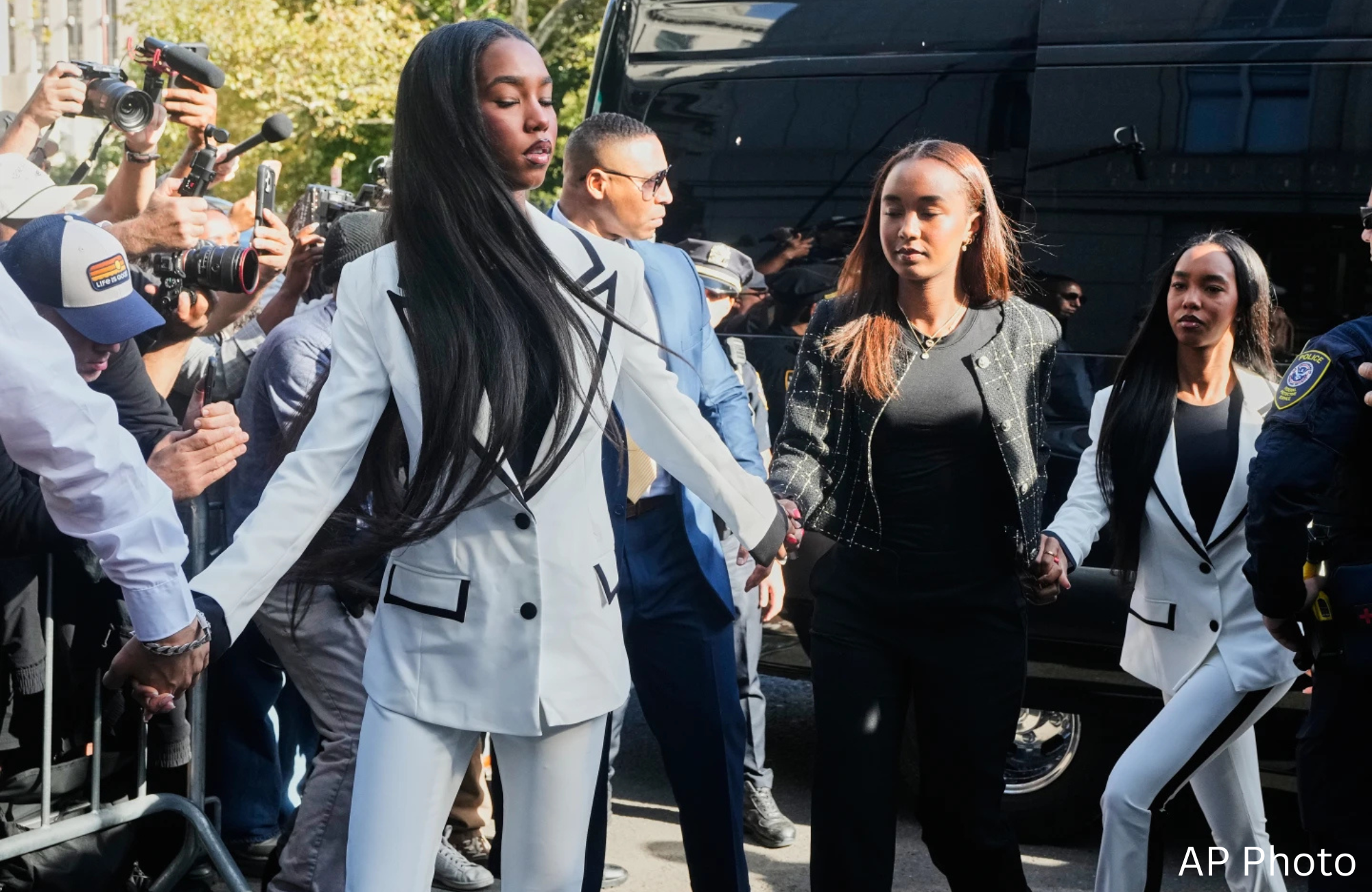Sean “Diddy” Combs, once one of the most celebrated figures in music and pop culture, now faces years behind bars following his conviction for transporting people across state lines for sexual encounters. The verdict marks a dramatic fall for the 55-year-old mogul, whose reputation as a charismatic businessman, producer, and entertainer has been tarnished by a series of explosive revelations and criminal charges. His legal team has already vowed to appeal the sentence, setting the stage for what could be another prolonged and high-profile courtroom battle.
From Stardom to Scandal
Diddy’s transformation from an industry icon to a convicted felon has unfolded like a modern-day tragedy. Known for his Midas touch in music, fashion, and television, Combs built an empire that once symbolized success, luxury, and influence. Yet behind the glitz and fame, prosecutors painted a grim picture of manipulation, abuse, and control.
In July, a federal jury found Combs guilty of violating the Mann Act — a law prohibiting the transportation of individuals across state lines for illegal sexual activity. The conviction stemmed from years of testimony and evidence showing that the hip-hop star orchestrated flights for girlfriends and male sex workers across the U.S. to participate in drug-fueled sexual events that spanned multiple states.
Though acquitted of the more severe charges of sex trafficking and racketeering — which could have landed him a life sentence — the four-year, two-month prison term represents a stunning reversal for a man who once ruled the entertainment world.
Inside the Courtroom
The sentencing hearing was emotional. U.S. District Judge Arun Subramanian imposed the maximum fine of $500,000 along with the prison term, citing the “systematic abuse of power” Combs had exercised over others for personal gratification.
Combs broke down in tears as his defense team played a video montage of his family life, philanthropic efforts, and professional achievements. His attorneys argued for leniency, describing him as a changed man who had used his year in jail to confront his mistakes and embrace sobriety.
“I was broken to my core,” Combs wrote in a personal letter to the judge, pledging to rebuild his life and make amends. Yet prosecutors, led by Christy Slavik, countered that leniency would “excuse years of violence” and diminish the pain of the women who came forward.
The Harrowing Testimonies
Much of the trial’s emotional weight came from the witnesses. Casandra “Cassie” Ventura, Diddy’s former girlfriend and R&B singer, delivered chilling testimony describing a decade of abuse, manipulation, and coercion. She recounted being forced into sexual encounters with strangers under Diddy’s direction, often in drug-heavy “freak-off” events. Jurors watched surveillance footage showing Combs dragging and assaulting her in a Los Angeles hotel hallway — a moment that visibly shook the courtroom.
Another woman, identified only as “Jane,” testified about being pressured into sexual acts during Diddy’s hotel parties, claiming that he sometimes filmed the encounters.
Prosecutors used these stories to demonstrate a long pattern of exploitation masked by fame and wealth. The defense countered that the acts were consensual and that the government was criminalizing unconventional sexual behavior.
Where Diddy Will Serve His Time
Combs has already spent a year at a Brooklyn federal detention facility, a location notorious for poor conditions and overcrowding. His lawyers previously attempted to secure house arrest at his Miami Beach mansion, but the court denied the request, citing security and flight risk concerns.
It remains uncertain where Combs will serve the remainder of his sentence, though a low-security federal correctional institution near Miami — home to roughly 1,000 inmates — is a likely possibility. Given his time already served, he could be released in roughly three years, though there is no parole in the federal system.
The Legal Road Ahead
Combs’ legal team, led by defense attorney Jason Driscoll, announced plans to appeal, arguing that the Mann Act was misapplied and that the case unfairly conflated consensual adult activities with criminal acts. They maintain that the trial was sensationalized by media coverage and fueled by “a rush to vilify a man whose fame made him an easy target.”
However, federal prosecutors appear confident that the conviction will stand. “This was not about fame or money,” said Slavik after the sentencing. “It was about holding someone accountable for years of harm and abuse.”
The Public Reckoning
The Diddy case has captivated the public not just for its legal implications but for what it represents — a reckoning for one of hip-hop’s most powerful figures. Once celebrated as a visionary who built Bad Boy Records and discovered stars like The Notorious B.I.G., Combs now faces a legacy overshadowed by allegations of violence and control.
When federal agents raided his Los Angeles and Miami homes in 2023, the seizure of over 1,000 bottles of baby oil and lubricants became instant tabloid fodder. Social media, late-night talk shows, and even “Saturday Night Live” turned his downfall into a cultural spectacle, highlighting how far the mogul had fallen from grace.
Still, Combs retains some loyal supporters who believe he is being targeted because of his celebrity status. Others see his conviction as a watershed moment — proof that fame and wealth can no longer shield individuals from accountability.
What Comes Next
As Diddy begins his prison sentence, the entertainment world continues to distance itself from him. Several business partnerships, including liquor brands and fashion collaborations, have been suspended or terminated. Streaming platforms have quietly pulled documentaries and specials featuring his work.
Whether his appeal will succeed remains to be seen, but the case has already altered the narrative surrounding one of hip-hop’s biggest moguls. What once symbolized ambition and resilience has become a cautionary tale about power, excess, and the price of impunity.
%20(4).png)




.png)
.png)
.png)
.png)
